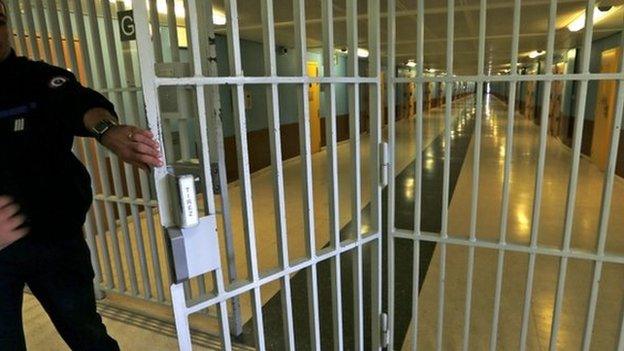Michaël Chiolo attack leaves France facing new questions
- Published
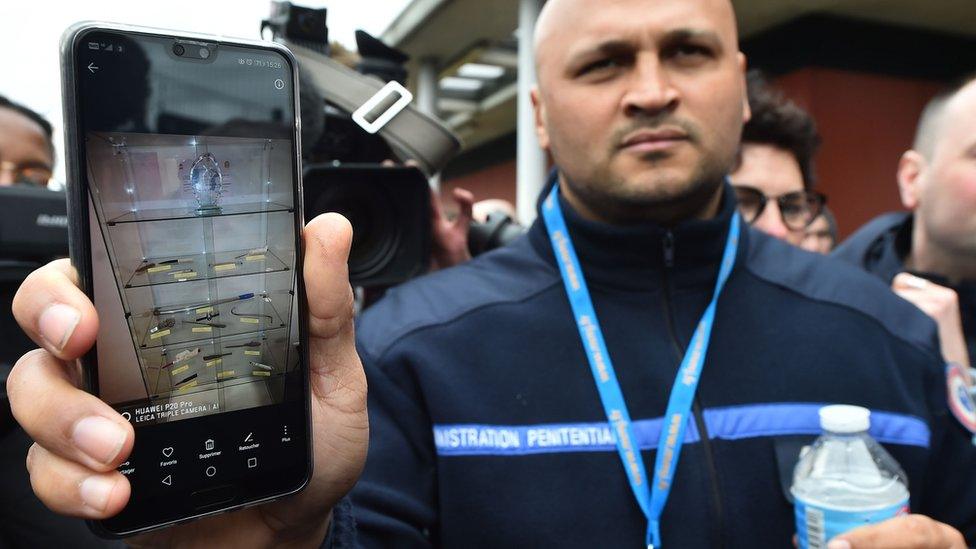
A guard shows prohibited items found in prison cells at Conde-sur-Sarthe
A number of questions face investigators looking into Tuesday's Islamist militant attack at Conde-sur-Sarthe high security prison.
How did Muslim convert Michaël Chiolo and his companion, Hanane Aboulhana, get hold of the ceramic knife with which they attacked two prison guards, leaving them seriously wounded?
If, as seems likely, the knife was smuggled in by his partner when she came for a conjugal visit, why was she not properly searched?
And third, why was Chiolo - a known radical Islamist - being treated under the same prison regime as common criminals, and not under a higher level of surveillance?
Finding answers to the first two questions should be straightforward.
French media report that visitors to prison Family Life Units (UVFs) are only obliged to pass through metal detectors, which are useless against ceramic blades. Body searches require consent.
This is such a glaring security flaw it is hard to see how it has not been corrected in the past. Presumably now it will be.
The third question is more complex.
How Chiolo found radical Islam
Michaël Chiolo has a sordid back story, the culminating point of which was one of the most chilling and notorious murders of modern times in France.
In 2012, aged 20, he joined forces with two other petty criminals in a plan to rob 89-year-old Roger Tarall, who lived alone in the eastern city of Metz.
Allow X content?
This article contains content provided by X. We ask for your permission before anything is loaded, as they may be using cookies and other technologies. You may want to read X’s cookie policy, external and privacy policy, external before accepting. To view this content choose ‘accept and continue’.

Tarall was a World War Two hero who had been deported to Dachau camp for his work with the Resistance but managed to escape.
Chiolo and his two accomplices tied him and gagged him so tightly that he suffocated to death. They made off with a few hundred euros and his medals. A few days later, after they tried to rob a bar, they were caught.
Prior to this Chiolo is reported to have had a troubled adolescence, dabbling with the far right and leaving his middle-class home at 17.
His former lawyer remembers him as "highly intelligent and cultivated" but also "something of a drifter".
In 2010 he converted to Islam. Initially, and through the criminal phase that followed, there is no sign that this was a particular influence.
But after the Tarall murder he was sent to prison, and things changed.
Chiolo was tried twice. First in 2014 when he was given a 28-year jail term, and then on appeal the following year when this was increased to 30.
"I remember him at the first trial in Metz," recalls his lawyer at the time, Cédric Demagny. "He was constantly counting his religious beads throughout the hearings.
"He was young and very alone in prison. The radicals held out their hand to him. After that he never made any mystery about his interest in Islam. After that he became more and more extreme."
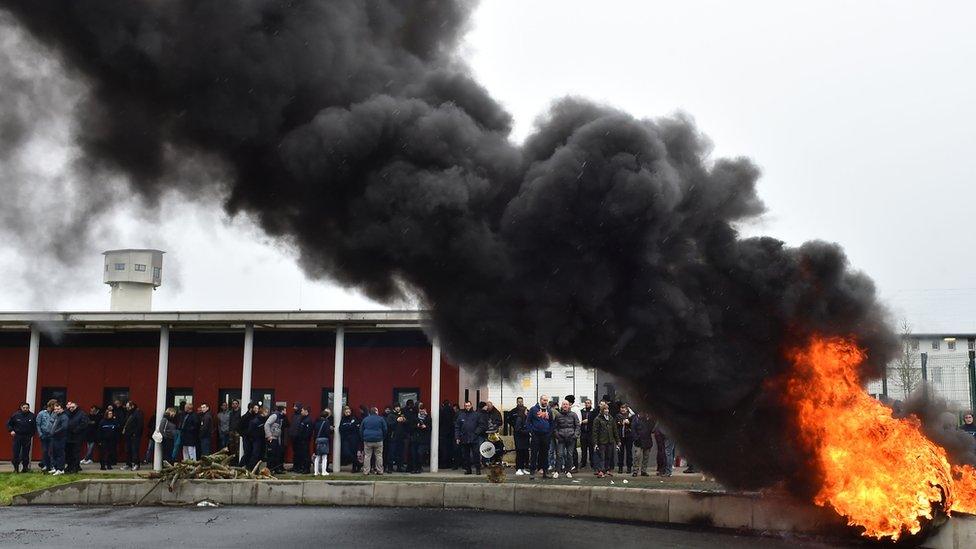
Prison guards blocked the entrance to the penitentiary after the attack
Dominique Rondu, who acted as lawyer for Tarall's sister, says that at the first trial Chiolo appeared "pretty cold, indifferent". But at the appeal a year later, "it was clear that now we were dealing with someone who had radicalised".
Tarall's son Alain recalls that, at the first trial, Chiolo "looked at me with these smiles of satisfaction. It was chilling".
At the second trial "he was even more virulent - now it was clear that he was dangerous".
"When the verdict was announced he threatened everyone, judge and jury. No-one paid attention at the time - but we should have," he told Le Républicain Lorrain newspaper.
Why wasn't he treated differently?
So why was a young Islamic radical, described in psychiatrists' reports as "suffering from a serious personality disorder" and "posing a serious risk to others", not under a different prison regime?
Why was he allowed three-day conjugal visits from his fiancée, whom he met while in detention - it appears to have been arranged by a friend - and who came to prison fully veiled?
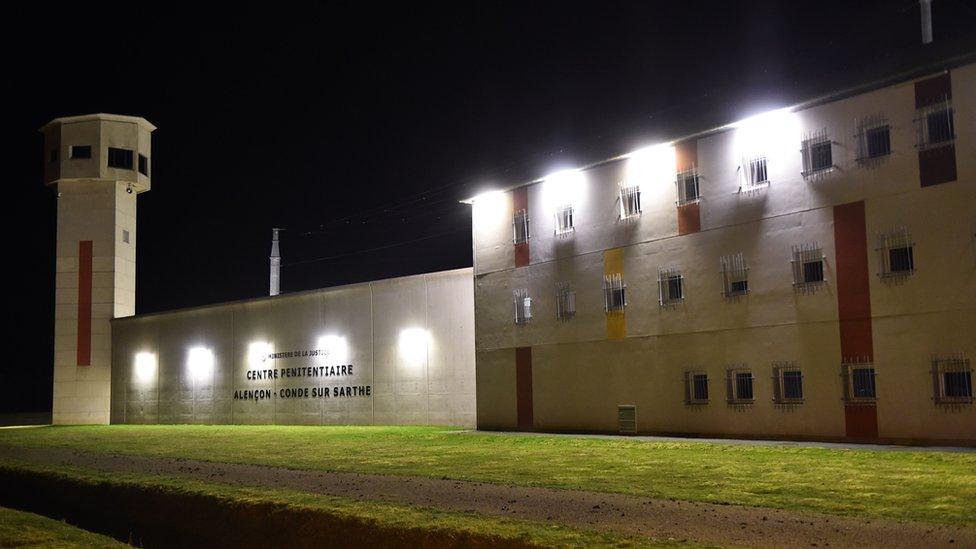
Chiolo served his time in the regular wing at Conde-sur-Sarthe
According to French reports, Chiolo was on a prison service list of known threats.
But at Conde-sur-Sarthe, he served his time in the regular wing, and not in the new ultra-secure QPR, or Radicalisation Prevention Quarters.
Prison service unions, with two injured colleagues, have been venting their anger at this latest breach of security.
Many in France are wondering again why, when it comes to radical Islam, prison seems to be more of a problem than an answer.
- Published6 March 2019
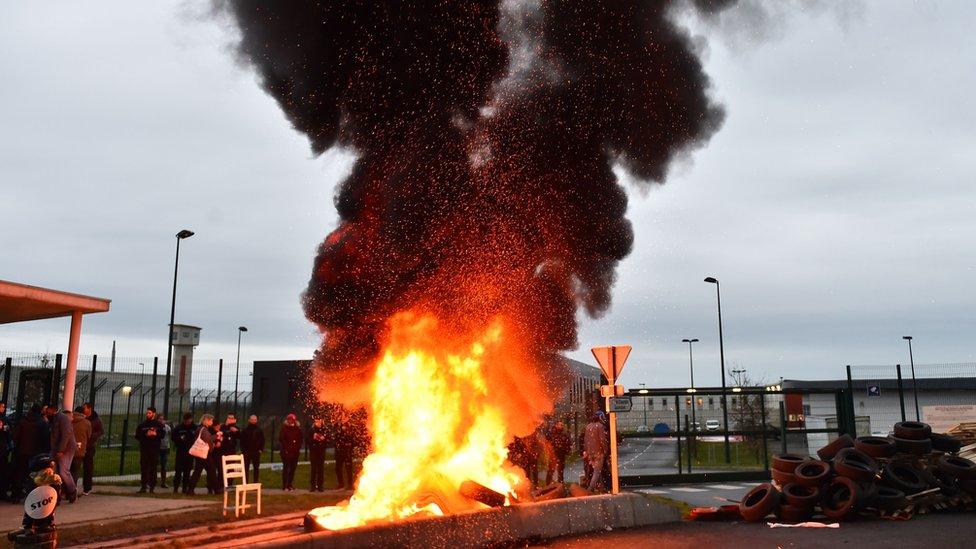
- Published15 December 2018
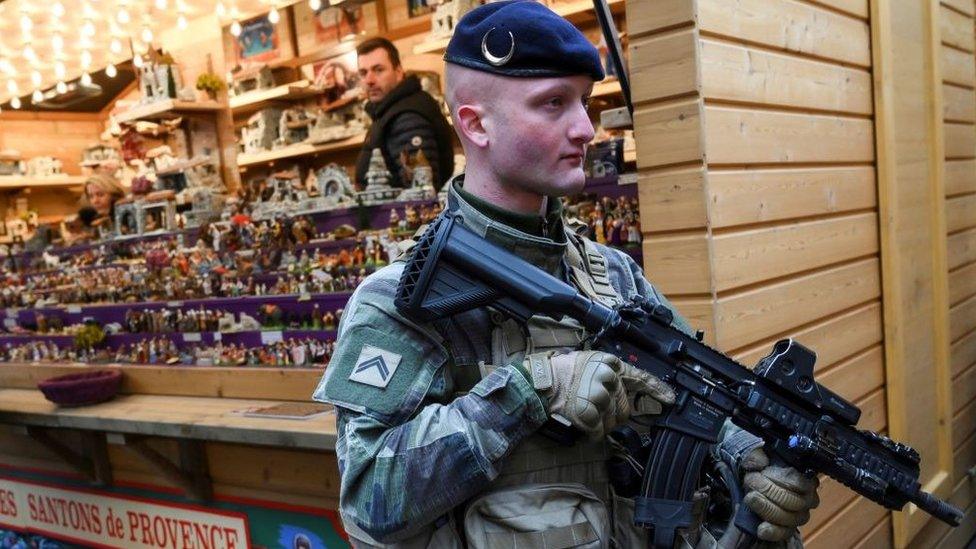
- Published5 February 2015
